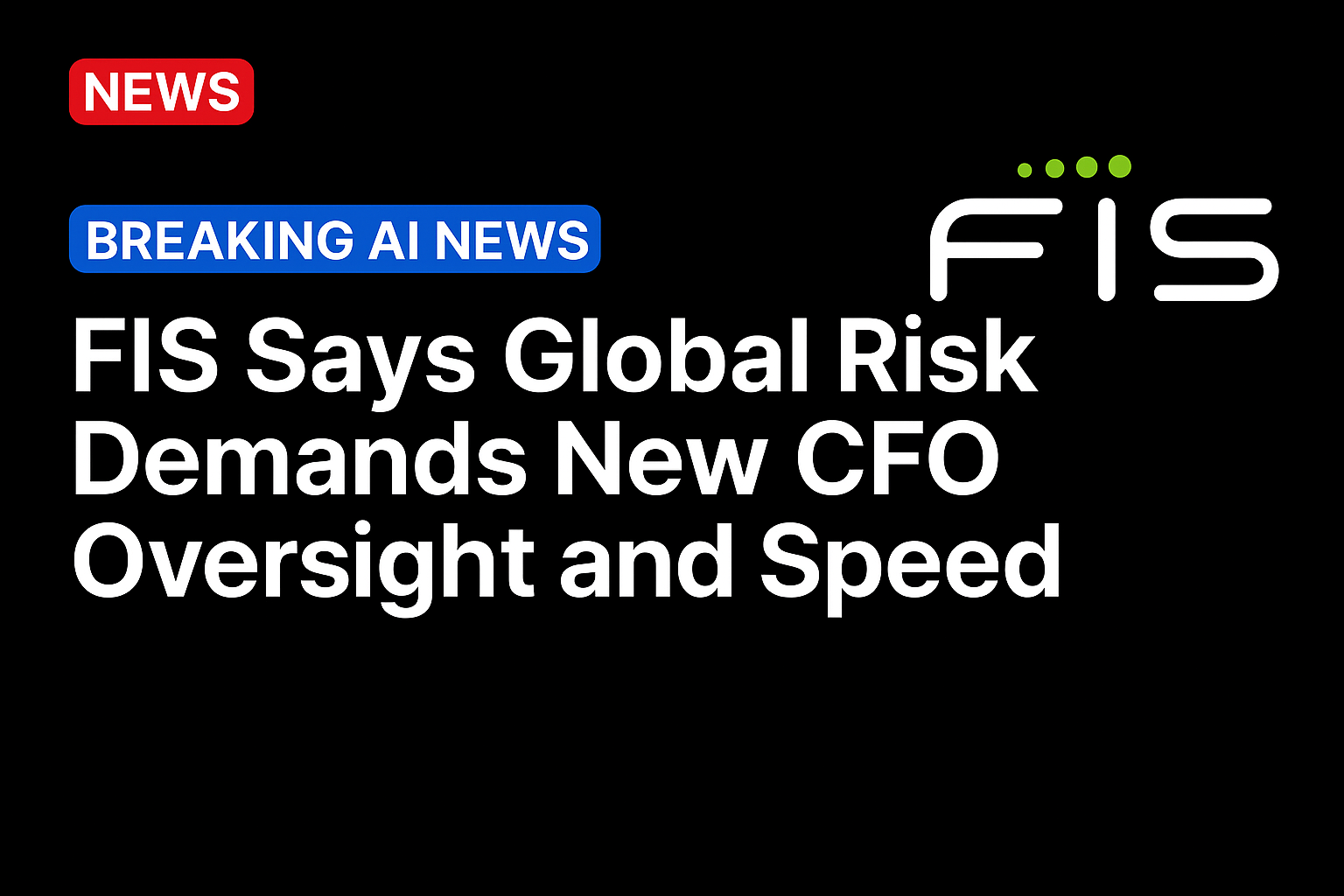
AI has brought a shift in the way finance leaders operate, FIS EVP, Group President, Office of the CFO JP James writes in a new PYMNTS eBook, “Headlines That Will Shape the Close of 2025.”
As 2025 draws to a close, artificial intelligence stands out as a primary catalyst redefining the function and influence of the office of the CFO. No longer confined to the realm of automation or basic analytics, AI has evolved into a dynamic engine powering strategic decision-making, risk management and financial innovation across global organizations. The final quarter of the year is set to highlight how AI’s integration is not just a technological upgrade, but a paradigm shift in the way finance leaders operate.
Strategic Foresight Through AI-Driven Analytics
Predictive analytics powered by AI are now pivotal in forecasting market trends, economic risks, and organizational performance. Chief financial officers harness machine learning models to simulate scenarios, stress-test budgets and anticipate disruptions — from volatile consumer confidence to geopolitical shocks. These capabilities allow the office of the CFO to move beyond reactive reporting and embrace forward-looking strategies. In Q4, expect an increased reliance on AI to guide investments, optimize working capital and refine pricing models, making the finance function indispensable to enterprise agility.
Automation for Agility and Efficiency
Routine processes such as accounts payable, reconciliation and compliance are rapidly being automated by AI bots. This automation not only reduces manual errors and frees up valuable time for finance teams but also provides real-time insights into cash flow and liquidity. As payment rails and transaction platforms modernize, AI enables seamless integration, ensuring that the CFO’s office stays ahead in adopting new technologies and responding swiftly to regulatory changes and market demands.
Risk Management and Fraud Detection
The increasing complexity of global commerce, coupled with the proliferation of digital payment systems, has heightened the need for robust risk controls. AI’s ability to analyze vast volumes of data enables the identification of anomalous patterns, potential fraud and cyber threats with remarkable speed and accuracy. CFOs leveraging AI-driven risk platforms in Q4 2025 will be better positioned to safeguard corporate assets, maintain compliance and uphold stakeholder trust amid uncertainty.
Human Capital and Strategic Influence
AI’s role in the finance function extends to talent management, enabling CFOs to assess team performance, identify skill gaps and tailor professional development programs. By automating routine tasks, finance professionals can focus on higher-value activities such as strategic partnering with business units. The CFO’s office thus transforms into a center of innovation, cultivating a new generation of analytically savvy leaders prepared for the demands of 2026 and beyond.
Looking Ahead
In the final chapter of 2025, the office of the CFO will continue to champion AI adoption, not only as a driver of efficiency but as a cornerstone of resilience and growth. The ability to leverage artificial intelligence for smarter, faster, and more strategic decisions will define the leaders who set the tone for a rapidly evolving financial landscape, propelling organizations toward a future where data and insight are the most valuable currencies.
Source: https://www.pymnts.com/

